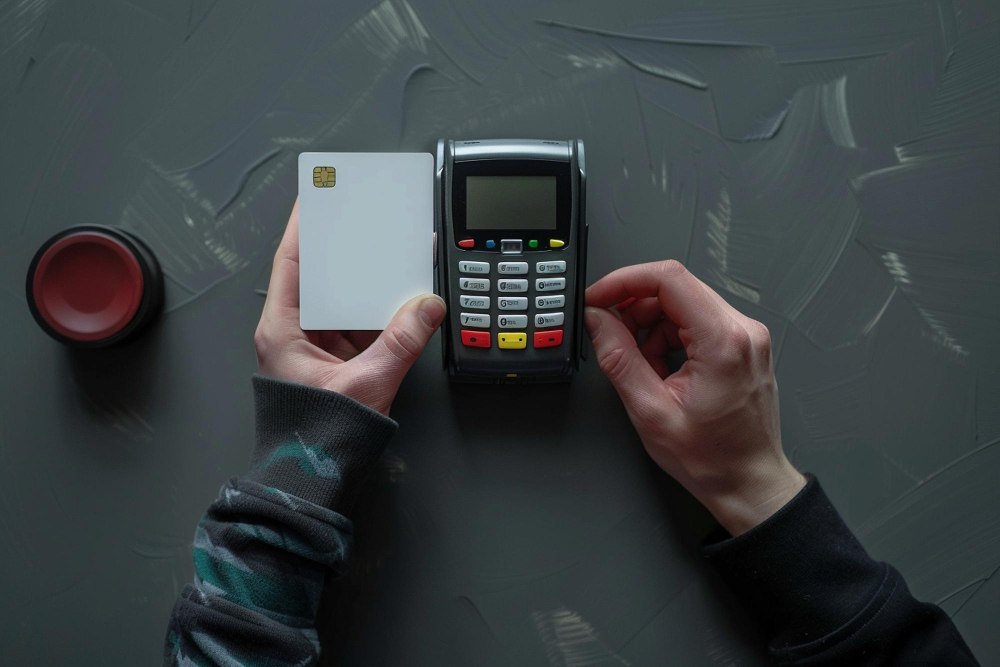
How to Work with Mir Bank Cards?
The Russian national payment system Mir is being actively implemented in the financial life of various countries, and this is…
The Russian national payment system Mir is being actively implemented in the financial life of various countries, and this is no exception in Belarus. Many citizens wonder how to use Mir cards effectively in daily life, mainly whether getting a salary is possible. In this article, we will take a detailed look at the functionality of Mir bank cards and analyze how they can be used to receive salary in Belarus. The answers to these questions will help you better understand how to optimize your financial processes and use modern technologies for the convenience and security of your money transactions.
What is the MIR payment system?
MIR is a Russian national payment system created in 2014-2015. Its main goal is to ensure uninterrupted card operations inside and outside the country. Belarus has a similar national payment system – Belkart.
The operator of the MIR system is the National Payment Card System Joint-Stock Company.
Russian banks issue MIR cards. Banks of the countries with which the MIR system is integrated issue similar national bank cards.
The system provides operations using national currencies.
What countries do MIR cards work in, and what operations are available for them
MIR payment cards are accepted throughout Russia and in many countries worldwide.
MIR cards can be used to pay for goods and services and to withdraw cash from ATMs. They work based on contactless payment technology, which makes them convenient and secure.
Currently, MIR cards are accepted in Vietnam, Venezuela, Cuba, Laos, Myanmar, Armenia, Azerbaijan, Belarus, Abkhazia, Kazakhstan, Tajikistan, and South Ossetia. Negotiations on cooperation with several other countries are also underway. Since 2023, Turkish banks have not served MIR cards. Usually, foreign online stores do not accept payment using the MIR card.
Different operations are available on MIR cards in other countries, and not all banks can do this:
- In Azerbaijan, you can withdraw the national currency in cash using MIR cards at VTB ATMs.
- Only VTB Armenia continues to work with MIR cards in Armenia. This bank has about 200 ATMs where you can withdraw cash. Other operations with MIR cards are currently unavailable in Armenia.
- In Abkhazia, you can pay with the MIR card in places that accept bank card payments. You can also withdraw cash using the MIR card at banks and ATMs.
- The situation is similar in Belarus: the MIR card is accepted for payment everywhere, and cash can be withdrawn at all banks and ATMs. Payment is available in Russian, Belarusian, and some foreign online stores.
- In Vietnam, MIR card payments are made through VRB Bank.
- In Tajikistan, Amonatbonk and Dushanbe City work with MIR cards, and you can withdraw cash using MIR cards at these banks’ ATMs. In some places, you can make payments using these cards.
- In Cuba, MIR cards are accepted in places with payment terminals of the MIR payment system.
- You can withdraw cash in Kazakhstan using MIR cards at VTB Kazakhstan ATMs. You can pay with MIR cards in places with this payment system’s payment terminals.
- In South Ossetia, cash can be withdrawn using MIR cards at ATMs of the National Bank of the Republic.

Can I get a MIR payment card in Belarus?
In 2022, Belarus will start issuing plastic cards branded with the MIR logo on the back to integrate the local Belkart payment system and the Russian MIR payment system. These cards are made within the framework of the Belarusian payment system Belkart and are used along with the cards of the Russian MIR system.
Almost all Belarusian banks offer customers payment cards supporting the MIR system; these are most often Belkart Premium class cards. Such cards can be issued for an average of 5 years (in some banks for one year, three years, or four years) at an average price of 20 Belarusian rubles for residents of Belarus and 40 rubles for non-residents.
It is worth noting that getting a card from the MIR payment system is impossible in Belarus.
Where and what kind of Mir card can I get
The MIR card can be issued at any Russian bank on the Russian Federation’s territory. Russian banks often issue it for free in addition to a bank card with a service package.
You can get a physical and a virtual card. With the MIR card integrated with the UnionPay payment system, you can make payments abroad, including in foreign online stores, and withdraw cash abroad. The MIR-UnionPay card works in 180 countries that support the UnionPay system.
Getting paid to the Mir card from abroad
Of course, the Mir card can be used to receive wages from Russian companies. Residents of the Russian Federation and countries where MIR payment system cards operate can receive salaries on the MIR card.
Salaries of non-residents of Russia
Usually, Russian companies can pay salaries to remote employees in Belarus with local bank cards integrated with the MIR payment system. In such cases, Russian rubles accrued as wages are converted into Belarusian rubles at the exchange rate of the bank in Belarus that accepts the payment. In addition, the Russian bank charges a small percentage of the international transfer amount.
However, many Russian companies work within the framework of salary projects of local banks, which, as a rule, do not involve using foreign bank accounts and cards. Therefore, Russian companies that employ employees in Belarus first check with their banks about the possibility of transferring wages to a card integrated with the MIR payment system issued by a Belarusian bank.
Salary for Russian residents who work remotely
Residents of Russia with MIR cards issued by Russian banks and located in countries where the MIR payment system operates can quickly receive a salary on these cards and spend money.
For example, Tinkoff MIR and Mini MIR cards issued in Russia can be used for offline and online payments in Belarusian stores. However, such foreign cards cannot be linked to Apple Pay and similar contactless payment systems in Belarus.
Will the Belarusian tax service be called if wages come from abroad to the Mir card?
A Belarusian employee who receives a salary from a Russian company on the MIR card of a Russian bank does not need to submit anything to the Belarusian tax inspectorate.
Suppose a Belarusian employee receives a salary on a Belarusian bank card integrated with the MIR payment system. In that case, asking the employer for a certificate of income showing the income tax amount is logical. This tax is calculated and transferred to the budget of the Russian Federation by the employer. A tax agreement between the Russian Federation and Belarus does not allow double taxation of the exact amounts. This means you do not need to pay income tax again in Belarus. In Belarus and Russia, income tax rates are generally the same – 13 % of the accrued amounts.
If an employee is called to the tax office in this situation, we recommend that you bring an employment contract and a certificate of income.
What to do when the salary is transferred not by the company but by its employee
As we have already found out, Russian companies and employers often use the salary projects of Russian banks. When a remote employee in Belarus has a Belarusian bank card integrated with the MIR payment system, the employer may, to save resources, assign payments from a Belarusian employee to another employee using their Russian bank card.
In this situation, a Belarusian employee may be called to the tax service because the bank documents do not show that this is a salary, and banks report to the tax service about cash receipts from abroad. The tax service may have questions about business activities without state registration if an individual regularly receives money from abroad, not from close relatives.
Of course, the employee will not have to pay tax in all situations, but you must understand that such a prospect exists. In this case, we recommend getting a bank card from a Russian bank to receive an official salary.
Our Blog
The latest news in our blog
Congratulations on New Year 2026 from the EOR.by team!
Dear friends, partners and clients! The EOR.by team wholeheartedly wishes you a Happy New Year 2026! The past year has…
Decree on the High-Tech Park
The High-Tech Park (HTP) is one of the most well-known legal regimes in Belarus, which for many years has attracted…
Poland (Poland Business Harbour / B2B)
Poland remains one of the most sought-after destinations for IT professionals, entrepreneurs, and tech companies from Eastern Europe. The Poland…
Contact
We’re available for the new projects



